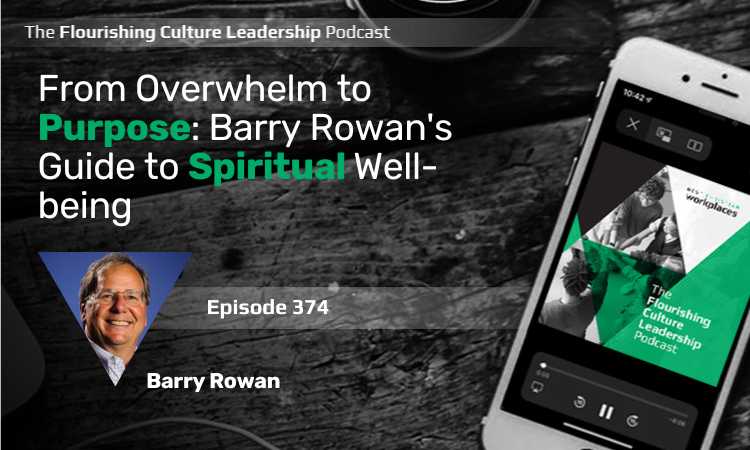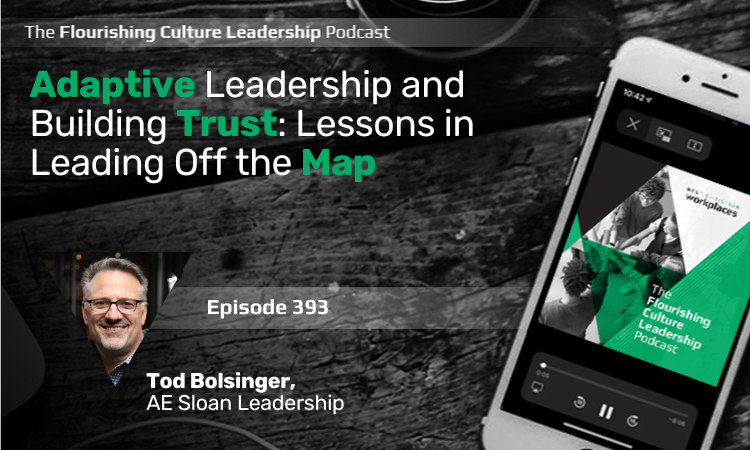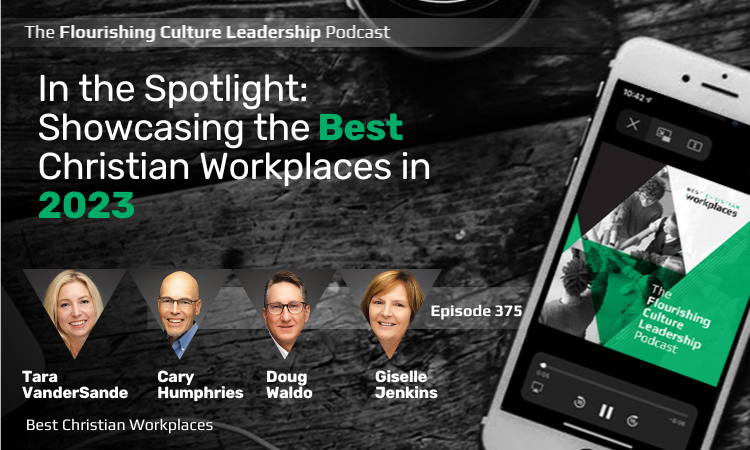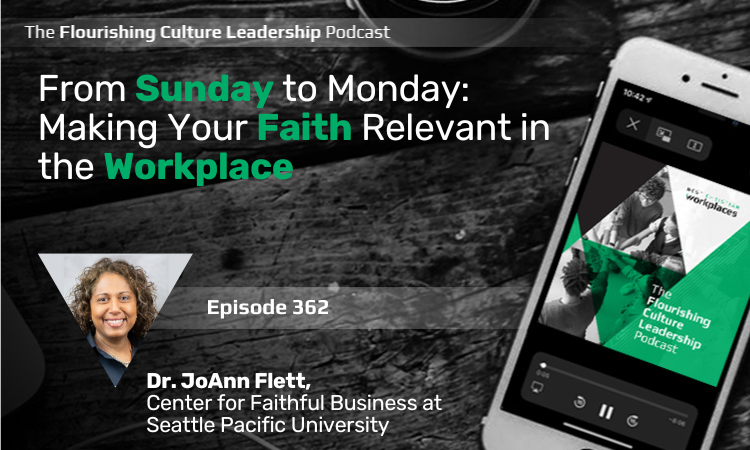393: Adaptive Leadership and Building Trust: Lessons in Leading Off the Map
Join us on the Flourishing Culture Leadership Podcast as we explore essential tools for leading change with Tod Bolsinger, author and executive...
2 min read
 Best Christian Workplaces
:
January, 29 2024
Best Christian Workplaces
:
January, 29 2024

Join us as Barry Rowan shares insights from his book, The Spiritual Art of Business, guiding us on a journey of faith-driven leadership and its profound impact on the world around us.
Listen in Apple Podcasts | Listen in Spotify | Listen in Google Podcasts
In this episode:
Barry's Background:
Barry recounts a profound personal journey spanning nearly two decades, where he grappled with the purpose and meaning of his work. A pivotal moment came during a tearful episode at a Colorado campsite, marking his dissatisfaction with a divided life. (05:06)
After an intense period of introspection and reading, Barry concluded that God likely exists and committed to living a life centered around that belief. He describes his entry into faith as "kicking and screaming" but ultimately transformative. (05:48)
Barry emphasizes a shift in perspective: rather than seeking meaning from work, one should bring meaning to it. This inversion, focusing on internal values and beliefs, leads to a more integrated and fulfilling life. (06:49)
The Spiritual Art of Business: Barry outlines a spiritual cycle encompassing four phases: Surrender, Transformation, Becoming a New Creation in Christ, and Engaging with the World. This cycle represents the journey of aligning oneself with God's will, transforming both the individual and the world around them. (08:35)
Mastering Time:
Mentoring vs. Intergenerational Friendships:
Spiritual Retreats:
Read a complete, word-for-word transcript of the episode
Follow our Host, Al Lopus, on LinkedIn & Twitter.
Email our host at al@workplaces.org

Join us on the Flourishing Culture Leadership Podcast as we explore essential tools for leading change with Tod Bolsinger, author and executive...

Join us as experienced Best Christian Workplaces consultants share stories of Christian leaders seeking and acting on feedback, setting the standard...

How do you integrate your faith and work, especially when leading in a marketplace setting? Dr. JoAnn Flett, executive director of the Center for...